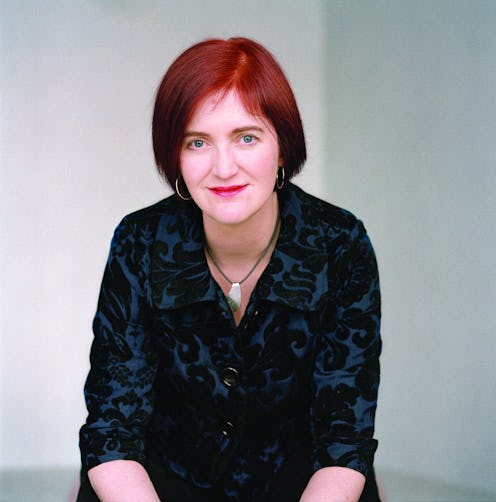Books
Can 'Frog Music' Fill the Shoes of 'Room'?

Emma Donoghue's newest novel Frog Music (Little, Brown) contains an eclectic assortment of elements that should create a rousing yarn: 1870s San Francisco, a French dancer/prostitute, a cross-dressing frog catcher, a smallpox epidemic, and an unsolved murder mystery. Two timelines weave together to tell the story. One starts when pants-wearing frog-catcher Jenny Bonnet crashes her high-wheeler into Blanche Beunon, a burlesque dancer. The second thread begins less than a month later with the same two characters, at the scene of Jenny Bonnet’s death.
The double narrative — both relayed in present tense from Blanche’s point of view — is a strange device that doesn’t add much to the experience of reading the book. It’s frustrating spending the post-murder timeline playing catch-up with Blanche, who obviously already knows what happened in the preceding weeks. What (if anything) would be lost by telling the story chronologically? Why not start with Bonnet crashing into Beunon, allow them to get to know each other a bit, and then save the murder for the dramatic climax? As it is, the fatal shooting happens right up front, which gets things off to an exciting start, but the plot's immediacy tapers off thereafter.
Donoghue’s prose is snappy, liberally peppered with italics, ellipses, question marks, and exclamation points. It rattles on at such a breakneck speed that it can feel uncared for. (We really don’t need two metaphors involving cabbage leaves in a four-page span.) Some of the Blanche’s interior monologue, which is supposed to come off as tough and sassy, often winds up sounding like a caricature of a Western: “Count your blessings, Blanche. Count your goddamn blessings.”
Both Blanche and Jenny are drawn with broad strokes. Blanche loves sex, that “frantic mazurka for two.” “I like it all,” she tells Jenny, “even the stuff I don’t much like.” The most interesting thing about Blanche — and the most satisfying part of her character development — is her messed-up relationship with her poor malnourished baby, P’tit. Her devotion to her sleazy long-term lover, Arthur, is less complicated. She seems to be sticking with him for the sex and the memories.
Blanche's devotion to Arthur flags a bit under the influence of Jenny. Jenny is "an odd kind of woman: part boy, part clown, part animal." She is "easy to enjoy but hard to know.” She has a criminal record, thanks to her penchant for pants, and an exciting thirst for adventure. At first, Blanche accuses Jenny of lacking manners. “Oh, I've got some,” Jenny retorts. “They're just not what you might call pretty. Diamond in the rough, that's me.” The scenes between Blanche and Jenny are entertaining, but few and far between. They barely get to know each other before Jenny meets her unfortunate demise.
With this novel, Donoghue is returning to her historical fiction roots after her 2010 page-turning sensation, Room, which tells a harrowing story narrated by a little kid who has spent his entire life held captive in a storage shed with his mother. Despite her newest effort's lurid subject matter and cinematic prose, Frog Music doesn’t have that same energy.
Image: Nina Subin